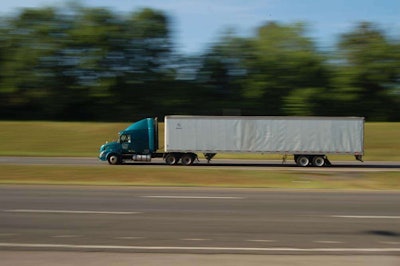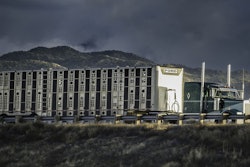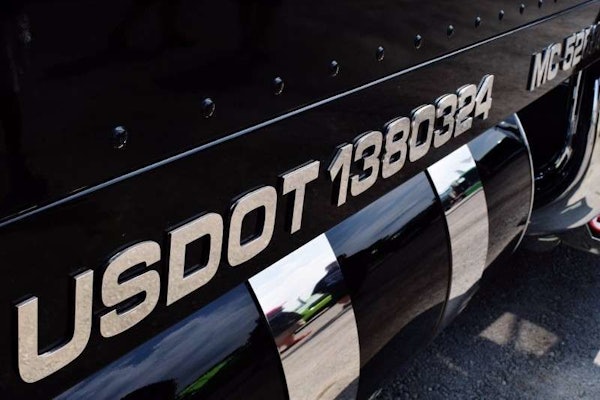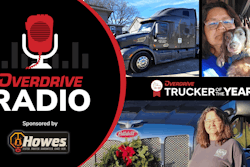
Last Thursday, former owner-op Scott Reed and small fleet owner Scott Jordan of the Independent Carrier Group brought together a host of other small fleet owners and owner-operators for a call with Joe DeLorenzo, FMCSA director of the office enforcement and compliance, and enforcement chief Bill Mahorney. It was a big group on the call, all told 10 people in addition to Reed and Jordan, who cast the purpose of the call as one acting on hope for a more collaborative relationship between the group and FMCSA “to improve our industry,” Jordan said. “By working together on solving problems … we can improve the quality of life for trucking, as well as the nation. Our hope is we can work with the FMCSA in monthly collaboration meetings.”
In this initial call, Jordan and Reed and others continued dialogue on, principally, the agency’s ongoing efforts to determine if and how to move forward with flexibility-enhancing measures in the hours of service and the notion of an exemption to the electronic logging device mandate for carriers with 10 or fewer power units. The former, hours, began the discussion, with Jordan presenting an idea for tweaking the hours of service that would retain 11 and 14 daily limitations but allow for more liberal splitting of on-duty and off-duty periods, with as little as a single hour available to stop the clock. It’s a proposal the group handed to Administrator Martinez himself in early April this year, Reed notes, a short time after the MATS hours session that ran off the rails.
Under the proposal, carriers would retain the option to require more than just a single hour to split. Ultimate completion of the 10 hours off, however taken, would “reset the daily working limits,” Jordan said.
DeLorenzo acknowledged the proposal as well as the “several others” the agency has since received in advance of and after its Advanced Notice of Proposed Rulemaking requesting flexibility comments from the industry this summer, including comments about formal petitions from OOIDA and TruckerNation (the latter group’s petition is somewhat similar to what Jordan laid out). DeLorenzo re-emphasized the reality of where FMCSA is in the process on hours. “The next step is the decision point – do we have enough to move forward?” he said. “If we decide it’s yes, the next document that everybody sees is an actual proposal. … I can’t give you a day or a time or a month – the administrator has said he wants this done as quickly as possible. A lot of people are working very hard, and once that decision is made, then a more formal schedule will be out there.”
In response to a question from Reed about timing, specifically referencing the month of March next year, DeLorenzo guessed that “I think that process-wise, by the Spring, we should have a good feeling for where things are. It’s a little early to say. I think I’ll have a better feel for it once we’ve gone through those comments” on the agency’s Advance Notice of Proposed Rulemaking asking for comments “and figured out where everything is.”
Reed says he believes the agency will have a proposal in hand before the end March.
Viz a viz the small-fleet (10 trucks or fewer) ELD exemption idea, also codified in a Congressional bill — H.R. 5948 — that would at this point seem to have little to no chance of passing before the new Congress is seated this coming year, owner-operator Steve Bussone noted he believed that such an exemption would “take undue financial hardships off of [small] motor carriers” and “give freedom of choice back to our industry. Many of us do not want older power units to avoid using an ELD system. Our demographic studies have shown most motor carriers desire to have fleet management systems when they start growing to above 10 power units. This would help small carriers know FMCSA understands them and it’s not always on the side of the megacarriers.”
DeLorenzo noted that “anybody can file an exemption request” to any regulation with FMCSA. The standard for granting any exemption FMCSA has to consider, then, he emphasized repeatedly. An exemption request must provide evidence of:
- “Why is it difficult to comply” with the regulation in question and
- “What’s the equivalent level of safety” that will be achieved by the carrier thus exempted.
No one has put forward an official exemption request with the agency to exempt 10-or-fewer-truck carriers from the mandate, as far as I know. OOIDA’s denied small-fleet exemption request was based on annual revenues as a cutoff point. Another request, still pending, asked for a small-company exemption from the ELD mandate based on a number-of-employees threshold. News published today shows the agency denying nine other exemption requests in addition to the one from OOIDA already denied.
Congress has been the avenue for limited exemption from the mandate in place now for livestock haulers, the only one outside of what’s in the rule itself. Congress, I suspect, given FMCSA was required by legislators to promulgate the ELD rule in the first place, may be the best avenue for an exemption that includes a big class of carriers like that. Never know until you try, though.
Other avenues explored on the call included opening dialogue on driver training as well as the disparities in enforcement nationwide, depending on the inspecting state jurisdiction or officer. FMCSA’s Bill Mahorney emphasized the now well-known DataQs system for challenging violations as an avenue to report instances where particular jurisdictions depart from accepted interpretation or practice.
“A big part of what Joe’s and my office in particular do,” Mahorney said, “after we put out guidance or policy, we have a series of webinars with the state and local enforcement personnel [to] make sure the same thing’s happening in the D.C. and Maryland — and Iowa and the like.” At once, “We and people in the states recruit out of the human race. And people make mistakes. When they make mistakes, that’s what we need to know.” (Being involved in the Commercial Vehicle Safety Alliance at whatever level, too, is an avenue for carriers to air particular problems where an inspection practice of a particular jurisdiction needs attention.)
As Scott Jordan put it, “If they don’t know it’s broke, they can’t fix it.”
Participants in the call not yet mentioned, held last week Thursday:
Small fleet owner Rob Hallahan
Owner-operator Lee Schmitt
Former owner-op Fred Bowerman
Owner-operator Steve Lapp
Owner-operator Doug Viaille
Small fleet owner Todd Campbell
Small fleet owner Daniel Davidson
Operational manager Bill Hayworth of Klingshirn and Sons Trucking
Owner-operator Bill Seagrave










